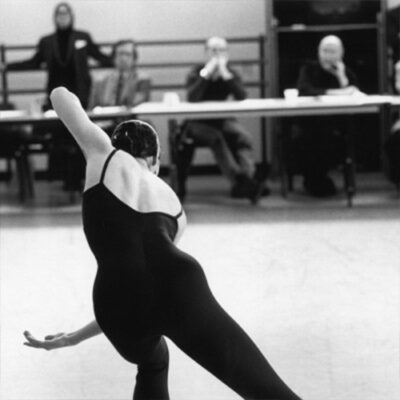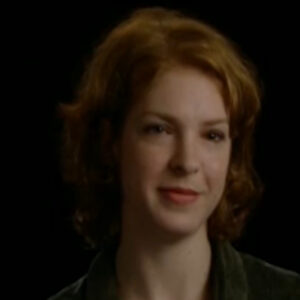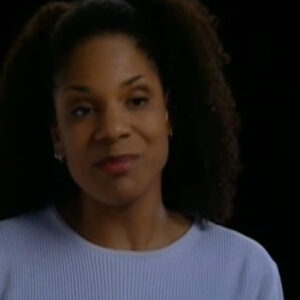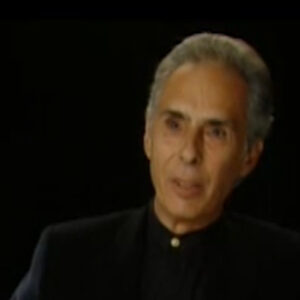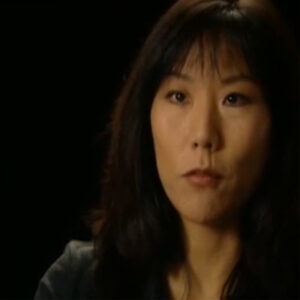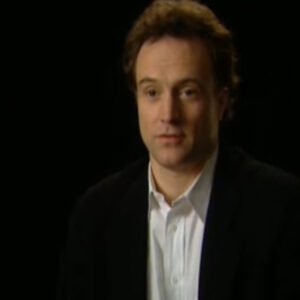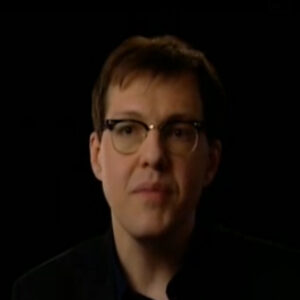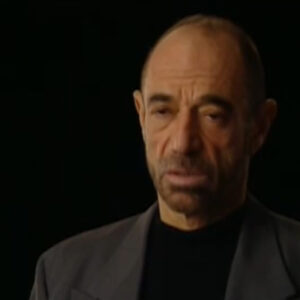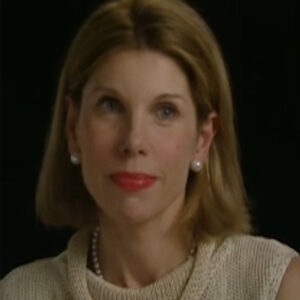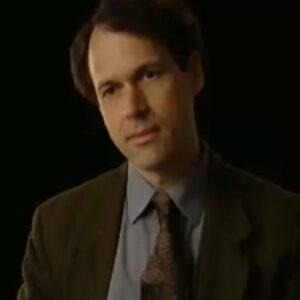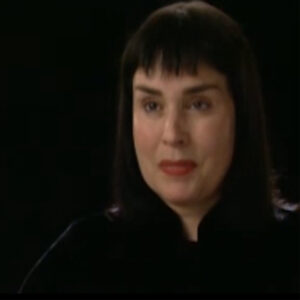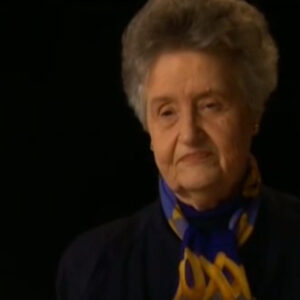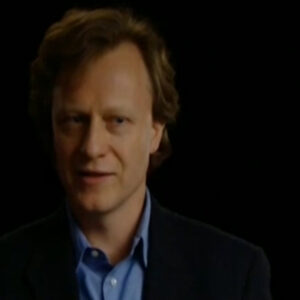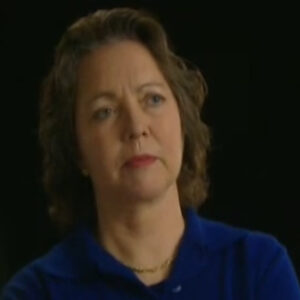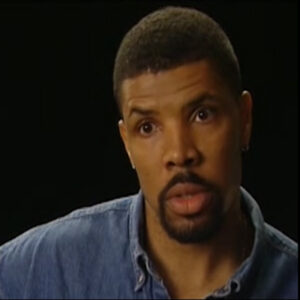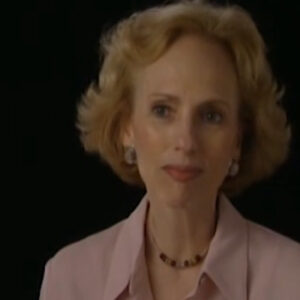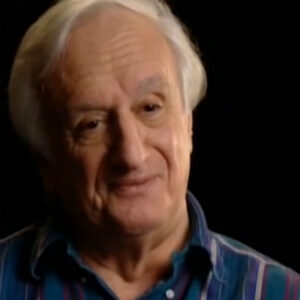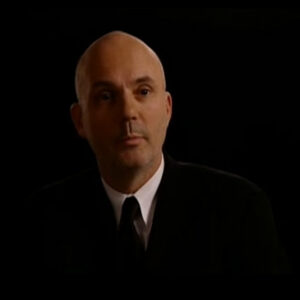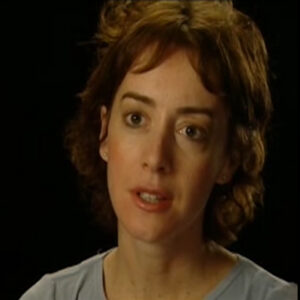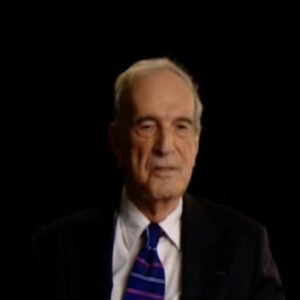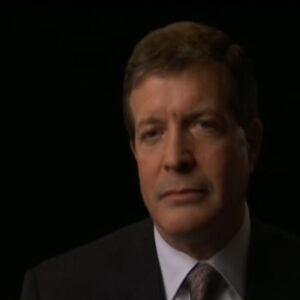Emanuel Ax: I guess I guess we arrived in New York when I was about 11 years old. And we’d spent about a year and a half in Canada. So I knew a little bit about the West having come from Poland. But New York was, you know, for an eleven year old kid. I can’t say a shock because kids at that age adapt very quickly. But I’m one of the few people I know who’s a real New Yorker, and I’ve just been here forever. And I auditioned for Juilliard right away. So I auditioned for the the so-called preparatory division, or I guess now would be called. I think they’ve changed the name to pre college division. I studied with a really wonderful, wonderful lady named Jane Carlson, who was. Just the most kind person imaginable, I was extremely lucky at the beginning of my life as a musician to always be with teachers who were incredibly decent people. When I was seven, I studied with someone in Lvov in the Ukraine who was just a wonderful woman. When I was nine, I guess we moved to Warsaw. Same thing. I met a lady who was just a great person. Jane Carlson, too. Sometimes I think that’s more important, actually, than the musical side. I think keeping kids. Serious, but at the same time encouraging them and letting them have fun. That’s the hardest thing. That combination, I think the rarest and most difficult talent to find really is is the talent to teach.
Speaker And when you were, you know, this little boy playing so young, did your parents seem to were choices in your life, your life as a result made this sort of. Were they realizing right away? Oh, this is so right.
Speaker You know, I’m not sure. I really don’t know. I wasn’t in any way a prodigy in the sense that clearly I was talented for music. You know, I was doing all right. And I was better than the average kid. Let’s say it was studying the piano, but I was in no way somebody who at the age of 14 was going to go and play with the New York Philharmonic. Nothing like that. I think my father very, very badly wanted me to take music seriously, to go into it. He was an amateur singer and he always wanted that to happen. And I guess being in New York, Juilliard was the place to go. Juilliard was. Well, certainly the most well-known school in New York and probably the most wealthy, well-known school in the in the Western Hemisphere. I suppose. So she didn’t go to Moscow Conservatory. You might as well go to to Juilliard.
Speaker And what was it what was it like for you when you first got there? Suddenly, you know, you’re through all these other kids, you know, music blaring through all the hallways and trying to I’m trying to remember exactly I Saturday was the day that all the pre college kids would go.
Speaker And quite early on, I was I must have been 14 or 15 when I was just starting to realize that maybe this might be the thing I would like to do. You know, this might be my profession. I met someone that I’ve been friends with ever since Garrick Ohlsson Garrick and I met I guess we’re almost the same age. I think he’s a few months older or something. And we met on Saturday at at Juilliard.
Speaker I got to be very friendly.
Speaker He was sort of my first exposure to a truly precocious big talent because he was one of the people who was playing the most difficult pieces at the age of fifteen. He was playing the Rachmaninoff Third Concerto and he was playing shopin eight UITs and he was playing everything that was just impossible that I really had no hope of learning just yet. So I think he was a great inspiration to me because I realized at that point that if I was going to. Make this my profession, my career, my life. I better start practicing. No, seriously. So I think I added a few more hours a day at that point.
Speaker Other people have said the same now that John Williams was studying with the elevator. He said, you know, Robert Browning was playing in the next room when John Browning, John, really hurt. And he was saying, I better start. You know, I better start thinking about this composing thing a little bit because I have never, ever been to that level.
Speaker Well, you mentioned something like people playing those difficult pieces.
Speaker It’s sort of, you know, the rock theory. And it made me immediately think of Scheid and we start thinking about the kind of conservatory myths, really. They sort of this sort of level of competition stress.
Speaker Yes. And yes.
Speaker I mean, as someone who’s sort of had that experience, do you think the sort of popular culture legend in this country has sort of created this kind of musical or if not performing arts myth that, you know, that maybe this movie could snap a little bit?
Speaker Well, you know, I think I think there are many realities. And certainly the movie we were talking about Shine, it’s certainly one of the realities. It’s certainly one thing that that actually happened. I know a number of people who well, I don’t mean it happened in that way, that someone keels over at the piano playing a difficult piece and has a nervous breakdown. I don’t know about that. That may have happened. That may not have. But certainly the pressure to succeed, as in every other field which which rewards talent and dedication of. I think there are a lot of those stories, a lot of people who tried very hard, maybe overworked, maybe focused on the wrong things, maybe were competitive in the wrong way and things just didn’t pan out. But it’s I I think it’s very much like a sports world. You know that you have people who are. Dedicating themselves every day in high school in order to play varsity sports. And then you have people in varsity sports dedicating themselves and doing what ever they need to, good or bad. To get into professional sports and when you think of how few of those people really get there and how many stories there must be of disappointment, of failure, of of bad things that happen. I think it does happen. Yeah. And I think one of the responsibilities that. All schools have, whether they’re a conservatory, actually yard or a great basketball school like Indiana University is to make sure that the people who are dedicated but maybe don’t pick the right card, you know, don’t don’t have the right lottery number and don’t succeed in the traditional sense. Don’t go out and play 100 concerts a year or don’t play for the Indiana Pacers. Still have a successful life. It’s a real problem. It’s a real problem in any competitive field, I think.
Speaker Do you feel in that in that line of thought in some ways that when you’re at. As a faculty kind of person on that side and you see somebody playing.
Speaker To encourage just go with it while you can you’re here or at some or at some stage, is there some responsibility to sort of say think within a more realistic. I mean, sometimes I see a kind of a obviously like anywhere favoritism at school.
Speaker I mean, there sure are better than others. Sure. Sure. At what point in a conservatory setting, you know, it’s like, how do you tell people? Or is it just your opinion?
Speaker Well, first of all, opinion obviously is a large part of it. And your opinions can be wrong, very, very wrong. There are there are people that are not necessarily the favorite ones at school who later emerge to be the more important artists.
Speaker It’s not a science in any way. My judgment about anyone else is as flawed as as anyone else’s. And in fact, I find that I have very bad judgment. So I try not to not to even get involved at that point. I try to be encouraging all the time because I don’t think I’m a very good judge. I’m I’m too easily impressed in some ways. And and therefore, I don’t you know, I have a bad critical faculty. Let’s put it that way. I think really the reality of sheer ability to play an instrument sets in pretty early. I don’t think you have to tell anybody. You don’t have to tell somebody that they don’t find it as easy to play the violin as Itzhak Perlman. They’ll know it. You know, I think that’s it becomes obvious it’s a physical act in that sense. If if they persist, if they find things that they want to say, even though it’s not so easy for them, very often they become great artists.
Speaker So.
Speaker It’s hard. The physical attributes, the mental attributes are I keep coming back to these silly sports analogies in a way.
Speaker But.
Speaker You see certain people that are extremely gifted. Naturally, they’re extremely gifted at doing something. And then you see other people that are extremely gifted at working five hours a day in order to perfect a skill that may not have been there in the first place. Different kinds of talent. I think both talents are wonderful and both should be encouraged. So I think I believe more in encouragement than anything else.
Speaker And we were reading about your teacher, Mr. Boone. Yes.
Speaker And if you could describe him, I think there’s a there’s a an audience didn’t know him, didn’t know what his significance was or what his relationship meant to you. How in your time at Juilliard, that relationship, you know, doesn’t go with a bond on many levels.
Speaker It’s one of actually named because my questions are, did you know one of one of the differences between teaching an instrument and teaching a class in Shakespeare is that it’s always a one on one relationship. Any kind of instrumental study really is going to be one person communicating with another, always on a one on one situation. Rarely do you learn a lot in a in a situation where you’re coaching a lot of people. And that’s my impression. I think it’s the one on one that that’s important. And my teacher, Neches Love, once was with someone who.
Speaker Well, I fitted with him. We got along extremely well, I think, because he demanded stuff that I needed to have demanded from me. And I was able to fill out the gaps that he wasn’t interested in. I was naturally quite curious about playing ensemble playing chamber music with other people. I was naturally curious about other kinds of music than piano music. I was naturally curious about, to some degree, about what was happening on the new music front. All stuff that he couldn’t care less about. He was interested in. Extremely good and correct and physically beautiful piano playing, which was not my strong point. So he forced me to work on that very, very much. And I was able to learn about the other stuff on my own. So for me, it worked wonderfully well. But there were a lot of people who were very unhappy with him. You know, it’s it’s it’s very much a. Well, in a sense, it’s like a marriage, I suppose, if it goes on long enough. I studied with him for 11 years, which is really a long time.
Speaker I’ve got a lot of discipline from him. That that was really. That was a tremendous thing that I learned. The idea that you practice every day, you practice slowly, you practice with an aim to making things sound correct and good. I needed that very badly.
Speaker And what was his?
Speaker His own history is, you know, I mean, how did he end up with Julia? What was his significance as sort of a teacher and player?
Speaker Well, his he used to be an extremely wonderful pianist, especially between the World Wars. He was of the same school and and friendly with people like Joseph Hoffman and Rachmaninoff and Joseph Levine. And he loved beautiful piano playing. I guess in terms of chronology, his claim to fame is that he was the second person after Rabon enough to play the rap on and off Paganini Rhapsody in in the West and infected the Canadian premiere with the Toronto Symphony. He developed problems with his right hand. And by the time I think in nineteen forty eight or nine, he was no longer playing. He was no longer able to play because of these difficulties. So he turned very much to teaching. And I guess he started teaching at the Peabody Institute in Baltimore. Did a lot of work in Japan and in Indonesia and in the Philippines and finally came to Juilliard. And when he did. My father, who had known about him back in in Poland, was very interested in me studying with him. So that’s that’s how it came about that I auditioned for him at the age of 14 or so. Fourteen or fifteen.
Speaker Was your audition a scary experience at that time? How do you put a lot on the line at that point?
Speaker Not it. I don’t remember it being scary. You know, I was I was a teenager. I wasn’t aware of really what was happening. My father took me there. He was quite nice, you know, quite pleasant and sort of, you know, it was very fast. It was just 10 minutes. And he and he basically said, yes, I’ll I’ll teach him, you know, if he auditions for the school and so forth. Because he had to do another audition he was teaching in the college division. So there was some kind of arcane way of working out the weekly lessons.
Speaker But it all it all finally happened and.
Speaker No, you were talking about something that you mentioned just briefly, but I was thinking about it in terms of him having an injury. You know, the whole element of playing the piano and being injured. And I’ve sort of heard it maybe in the early years of Juilliard, even know people would hide their injuries. You know, it’s sort of not wanting people to know that they’ve been at this the whole kind of philosophy or the two things at play happen and that I’ve heard about changing. What is the level at which people are playing to the level at which they’re thinking about their body and how they play. And the girl that we’ve been following actually as a student has been overcoming a kind of a strange, alarming, huh? And one older she didn’t sort of players that, you know, she’s admitting to having an injury.
Speaker So I it was sort of interesting.
Speaker I mean, is that when in your time, was it was there a lot of thought to how to take care of yourself or how to think not out those elements?
Speaker Not really. But, you know, I think somehow that’s more a reflection of what’s been going on generally in the culture.
Speaker I think we have to actually if you say I think we start again, this as I was talking about what it is and you just said that we shouldn’t say that.
Speaker Yeah, but I mean, if you have to actually know I mean, you did that the whole the whole way of looking at. The physical elements of playing and injuries versus correctness. Physical preparation and so forth are, I think, are very much a reflection of what’s going on generally. In in our life, I think in the last 20 years, there’s been a tremendous explosion of interest in the body, in fitness. When I was a student, I knew maybe two people at Juilliard who ran, who’d go out and run. That was an insane thing to do at this point. When I see my kids know they’re exercising all the time, I don’t know any friends of theirs who aren’t doing physical exercise, whether it’s working out in the gym, jogging, playing a sport. And it’s seen as very much a part of necessary education and a necessary process to live a good life. The idea of mens sana is incorporate. Xano is very much a part of our culture and I think that certainly extended to anything that we do in music. There’s been an explosion of interest in what is. What is good for playing the piano or the violin? And what is bad? What muscles you’re supposed to use? How you’re supposed to exercise. How you’re supposed to sit.
Speaker How you’re supposed to stretch out. What hurts and what to do about it. All those things are. That’s all since I was a student. I would say, at least to me, I think there’s a there’s a definitely a great change.
Speaker Yeah, well, so I’m not. I mean, Juilliard, in fact, has had to sort of follow society, that kind of holistic sense of. Absolutely. In that sense, the schools change. Perhaps it was once very slow, mystically driven and.
Speaker Oh, I think I think the school at this point in is is completely. Is it a totally different animal from what it was when I was at Juilliard? And the idea of looking out for physical injury is just a very small example. There’s so much more interest in classes which have to do with other things than simply playing the piano. You know, when I was at Juilliard, there was the. Well, almost spoken, but certainly certainly unspoken in a very strong way that anything except your weekly major lesson and practicing for it.
Speaker Was a little bit of a waste of time. You know, that was all for fun. But the really serious stuff was preparing the things you were supposed to work on for your lesson for the competition that you were working for, for the future career. And I think that’s changed tremendously. I think the school now sees that there are so many ways to make a successful life in music. There’s teaching, there’s ensemble. There is music therapy. There is. Teaching French in a musical way. There’s. Art history that has to do with with with music, you know, all of these things are seen as legitimate ways to make a successful life in music.
Speaker Well, you someone you are someone who is also particularly embraced this this collaborative. Part of music. You know what? The the girl that the pianist that I’ve been following there, she talks a lot about the solitude. And, you know, everybody wants to be a soloist.
Speaker But she’s she’s questioning now because of the solitude.
Speaker Yes. Yes. Well, pianists in particular suffer from solitude. It’s. It’s really hard to work by yourself. Many hours. And then to be by yourself and then to play by yourself. Not even necessarily facing the audience or in fact not facing the audience. You know, pianists are really the only performers except conductors that don’t see the audience face on.
Speaker We’re always looking onto the other side of the of the wings. You know, the other side of the stage and.
Speaker I think it can get it can get very lonely. And of course, it’s a much nicer life if you can walk on stage with a friend.
Speaker For me, it’s been it’s been wonderful to be able to do all different things, to be onstage with orchestras, to be onstage with people like Yo-Yo. And to be on stage on my own. Being on stage on your own is a great responsibility and a tremendous satisfaction when things go well, because then you feel that you’ve established a real communication with just you and the audience. It’s very exciting, but it can also be exciting in a totally different way to establish a communication with your friend onstage.
Speaker Did this did this collaborative? Is this sort of collaborative spirit developed for you? Well, while you were still at Juilliard, I mean, and in a way, you know, maybe one of the great things about a place like Juilliard is your you’re reading so many like my you really can without using the word crass word of networking.
Speaker You develop these relationships. I mean, well, your relationship with Yale, you did not.
Speaker My relationship with Yo-Yo actually started at the Juilliard cafeteria, as it happens, because we were both goofing off from something and we became friends long before we played together.
Speaker Yup. Clearly. That the most wonderful thing about about Juilliard from from my point of view, both as it as a student and as a teacher, is the other people you meet there. Most of my lasting friendships and my marriage date back to Juilliard.
Speaker So.
Speaker For me, it was a wonderful place. You know, I guess I’m naturally a gregarious sort of person. I found it quite easy to make friends. There’s so much to talk about. If you’re passionate about music, you will find hundreds of people just as passionate, gifted, bright with with different points of view. It’s tremendously exciting. And I think yes, I think I think you’d probably find that that was true for a lot of people, that a lot of their friendships and a lot of their really intimate relationships date back to the Juilliard years.
Speaker And what was, you know, in some ways. What, what what what didn’t work for you eventually?
Speaker And what were your what were your hard moments there? What was your own? Well.
Speaker I have to say that. For me, almost all of it worked. I didn’t have problems at Juilliard, but one of the reasons I didn’t. Was because I was a New Yorker from a very early age. I went to pre college, so I knew what to expect. I knew that. When I got to Juilliard, I was going to be a very small fish in a very large pond. Think that’s a huge adjustment for a lot of people. Again, we’re always we’re always faced with the. With the problem that there is an incredible wealth of talent and there is a limited amount of slots in which that talent can fit. I think that’s always been true. I think it might be more true now than it ever was.
Speaker I think it’s a very difficult adjustment for someone who comes from a place that’s not as pressured or not as full of talent to arrive in this mecca of of a really incredibly bright, gifted, motivated, successful, accomplished people.
Speaker It’s it’s sort of I guess it it if I can compare it, it must be for someone who who arrives at a place like Harvard. And he’s premed. Except everybody there all of a sudden it’s premed and they all have straight A’s. It’s hard. I think it’s very difficult to to make that adjustment unless you prepare for it. I, I never expected to be. The most important person, so I had no problem with that. That was an easy adjustment to make. And I really enjoyed it. I had a wonderful, wonderful time. I really have great memories of it. You know, I don’t have bad memories.
Speaker Well, I’m always trying in some way when I when I do this movie. To think in some ways about, you know, what is it about what’s going on at Juilliard.
Speaker That’s. That’s important, too, to the larger public, so that someone doesn’t turn on the TV and say, well, this is just a lot of people that had options and talents that I never have.
Speaker But, you know, this is just this is just the golden. Thing that, you know, the ring that’s beyond most people’s grasp and it is in some ways, but there’s something about that. Something about the journey. Something about everybody having a chance or thinking about what your own possibilities are. The kind of hot something. And I’m trying to dry out. You can say, well, that isn’t me. I’m not going to be playing well at Perlman, but there’s something I know.
Speaker But that’s just it. That’s. We were talking before about the different kinds of talents that exist in the world and and exist in the music world. And I think what a place like Juilliard. I hope, especially these days, allows you to develop. Is your love and your talent. There are as many different kinds of talent as there are people.
Speaker And it would be wrong to think that the people that are the most satisfying musicians or the most satisfied musicians are the ones that find it the easiest to do. There are any number of people who on a certain level, are completely brilliant. Find everything easy. Learn everything quickly, have technical skills, which are amazing. But somehow, never. Connect that with their inner being or with their passion for the music. And there are other people. I find it so difficult to do physical things, you know, to do things that need to be fast. They really have to work so hard for that and things that need to be accurate. Were there a lot of skips and so forth? Some people just do it. It’s so easy for them. And some people need to spend hours, days, weeks doing it, but they want to. And the passion that they have to do that to reach that level gives them a very great depth, I think.
Speaker And so. I I guess I’d like to believe that Juilliard is now a place where all of us students and faculty see beyond surface talent and try to penetrate to what people? Really love about what they’re trying to do.
Speaker I’m so happy that I know nothing about visual stuff and I never have to do that. What?
Speaker I thought you were. I noticed that you were going to play in the Joseph Smith Memorial. Yeah. Sunday one day. Because we. Because, you know, I’ve just we just missed him literally. Yeah. Yeah. If you could talk a little bit about him, I mean, I would like to in some way include is kind of like.
Speaker Really. Okay. And I’m wondering why he was not a very nice man. And a lot of what I mean, it was I was interested when I saw that you were going to be part of this. Yeah. What his. Well, what his story was, so to speak. Yeah. See, I used to make.
Speaker We were very poor when when we were in New York. My mother and father obviously had come over from from Poland. It was hard. So I made money when I was at school by playing for lessons of violin, cello and cello teachers, basically. I played for Dorothy DeLay twice a week. And I played for Joe Fluke’s once a week. And I played on occasion for Leonard Rose when he was in town. You know, just the pianist for the lessons. When whoever would come in, you need to play the Tchaikovsky concerto. You know, I’m the pianist who plays the accompaniment and so forth. It was a great education. I’m probably the only pianist in the world that knows the view from Fourth Violin Concerto.
Speaker I don’t I can’t imagine anyone else knowing it.
Speaker The fifth maybe, but certainly not the fourth. And I used to play for him every Monday from three to six. I would come in and play and he had three three students, the same people that I was involved with, one of whom was an extremely gifted Japanese violinist who’s actually also in the memorial, Hamoud Fujiwara, who subsequently one third prize and the Queen Elizabeth competition and is now a very well-known teacher and concertmaster of of a big Japanese orchestra in Tokyo. And then another student who was much, much less gifted. And then a third one who was very adorable lady that that he liked a lot. And I guess he was a little bit. I think he was a terribly kind man in a sense. He worked very hard for his students. He always tried to talk them up everywhere and to get them outside jobs and to make sure that they had a good violin. And so he was very, very concerned in that way. He was wonderful. But sometimes he was a little bit of a Mr. Malaprop. He’d say the wrong thing at the wrong time. And I remember that this poor guy that used to come after Hamo, you know, I would come in and every week it would be a different Bartok concerto. And the following week, it would be the bare concerto and the following week, the Sebelius concerto. And it was all impeccable and it was all perfect. And this poor guy was playing the same piece for two and a half months, you know, getting better and better and better a little bit. You would teach. He’d complain, but he would teach him. And finally, the last day before the final exams came in. The first one comes in and plays impeccably, the Bartok concerto. It was just unbelievable. I mean, I was I was odd. Everybody was ordered. Mr. Fox was odd. I was odd. Even the kid was odd. I think at himself that lesson finishes and the second comes. And he plays and he played very well, you know, after three months of the same peace, finally it took and it was solid, it was there. And FUQ said, well, you know, Fujiwara. But that was very good.
Speaker And he didn’t really mean to say the first part. It just came out, if you know what I mean. He was just thinking it. But he said, hey, hey. So sometimes he he’d say these things that really knowing them I think of.
Speaker I guess the kids all liked him so much, though, because I think they felt that underneath that he really was a very kind man. So I shouldn’t have said he was not a very nice man. He was a very nice man who sometimes sounded wrong, if you know what I you know, he was the proverbial heart of gold covered with with something. I don’t know, whatever. But I think he did have the heart of gold, though.
Speaker And what about your. That’s it. I’ve never read anything I’ve ever seen written about, you know, her.
Speaker I got to know very, very well. I got to know Dorothy really well. I shouldn’t say Dorothy. I got to know Miss DeLay very, very well.
Speaker I still call her Mr. Lay. I worked for her for about two years, two days a week. So I really knew her extremely well.
Speaker And I basically saw all the great violinists that that studied in in the West. I used to see Kumchon Pinkie’s Zuckermann. It’s OK by that time was I guess, already playing so he wouldn’t see her very much. But once in a while he’d come in and play.
Speaker Shlomo Ments got all.
Speaker You know, everybody who who basically studied with her. All the sort of important names around.
Speaker She was a wonderful teacher, I thought, because she. Was somehow able to reduce every problem. To a series of simple steps, you know how?
Speaker I guess she was able to say, look, the reason this doesn’t sound good is because your right arm needs to do this. Your left hand needs to do this and your violin needs to move in this direction. And lo and behold, things would sound better. She was able to break things down to where people could really understand. Of course, that’s a fantastic attribute of teaching because a lot of teachers, especially the very great violinist, you know, would probably say, look, this is how I do it. And to some degree, that’s helpful.
Speaker You know, imitation, of course, can be very helpful, but it’s much better if you really can say, look, the reason this doesn’t sound good is because your wrist is turned this way or that way. And if you were to turn it this way, it would sound better.
Speaker And to actually make a difference, I think she was really able to do that. I thought that was a fantastic attribute.
Speaker Well, were you also privy to this? Well, they are the players that studied and talked about it kind of.
Speaker Her kind of making you think that a lot of things were your idea? Sugar plum?
Speaker Well, she certainly used sugar plum a lot. That’s a lot for your concept of a shark that could be young. Could be niceness about her. Oh, she she was.
Speaker She was very much like her. I always felt like a mother hen because she would come in from. She lived in upstate. And she would come in. She was always late. And there was a huge group of people always waiting to see her. The people that had the lessons, that was one thing.
Speaker But also all the kids who would have lessons on other days would have questions about Miss Lay. I got a call from a music club in Detroit. They’re offering me two hundred dollars to go and play. What should I tell them? I can play and someone else would come and say I have a chance to get this violin. Should I get this violin or should I wait for another one? They all would come and have they have all these questions, you know, or my boyfriend wants me to go away. But Mr. Perlman is playing on the Saturday, and I don’t know if I should go with my boyfriend or I should stay and hear his recital, which should I do all these things. And they would always come to Mr. Lay for that. A lot of questions. So in that sense, she was unbelievably supportive and unbelievably kind to the point where after a year she saw that I was very interested in the violin. She said, Would you like me to give you lessons at the end of the day? You know, at the end of the day, why don’t you let me give you a five minute lesson and we’ll we’ll see if you can learn a little bit about the violin. Said Fine. Sounds wonderful. So the first time picked up her violin. And I’m sort of like this. And she said, well, you can’t play that way, dear. And I said, What do you mean? And she said, well, how are you going to get your fourth finger on the left hand up up here, you know, to stretch for the high note? So I said, well, what do you want me to do? Well, in order to play the violin, you’ve got to do this. And it felt so horrible. It was I to this day, ever since those I had maybe three lessons. And I said, this is just not for me. It’s not comfortable. I have no idea how these people play. I really don’t I I don’t know how someone like stock picks up the violin and looks comfortable with it. He just looks like it’s normal to sit and hold the violin. And it’s actually completely contorted.
Speaker You know, you have no idea what your back is doing while your arm is up here. It’s crazy.
Speaker Do you think many people feel that?
Speaker No. See, the piano is a very relaxed and comfortable instrument. Everything fits well on the piano. First of all, you sit like this, so your forearm bones are crossed, which is a strong position. You know, when you read like this, the forum boards are parallel the radius and the ulna when you’re like this. They cross that. I think it’s the radius that comes over the ulna, gives it more strength. All the gravities on your side. Everything comes down. You get to sit. Don’t have to stand. It’s just wonderful. It’s a wonderful instrument. I think that and the cello are the most comfortable instruments to play because everything’s sort of down. You know, the bow comes down on the string, the hands come down on the keyboard and with the violin, it’s very much the opposite. Everything needs to be lifted up and it’s quite hard.
Speaker Do you know a lot about the sort of piano legacy at Juilliard? The great history of the teachers and the players?
Speaker I mean. Well, I think I know I know quite a bit about the major people that. When that made Juilliard what it is from I guess, from 1925 until the present, I suppose it started as a place called the Institute of Musical Art. And I think the great figure. Between the wars was a man named Ernest Hutcheson, who was, I guess, probably one of the most important teachers in the United States ever. He did a lot of additions of of different music. I think he did an addition of Beethoven sonatas, an addition of bar in addition maybe of Brahms, I’m not sure. Exactly. Great scholar. Tremendous interest in literature for the piano specifically. In fact, one of the courses that I think is his legacy is called piano lit piano literature. And it was run for many years by a man named Ernest Bloch. Sorry, I said Ernest Bloch. Ernest Bloch is a composer, Joseph Fluck, Joseph FLOC below C.K., who is an incredibly sweet old man who started this.
Speaker Here’s my editorial. Oh, yes. If you just begin the sentence again with I think what is the most important thing, I will do my best.
Speaker Ernest Hutchins’ developed with the piano literature and uses them correctly. I’ll add them together. I never know.
Speaker I will try. Well, I guess one of the great legacies of Ernest Hutcherson was a course called Piano Literature, which examines everything from soup to nuts for the piano. And when I was at Juilliard, it was run by a wonderful man named Joseph Block. It’s being run now by a man named Scott Boubakeur, who is doing a tremendous project directing.
Speaker I want you to be telling me right now that this is the joy of editing.
Speaker What did I just say? God. But that’s OK, because I happen to know the second group. Dare I say Scott Pravachol. Scott Boubakeur is the third horn in the Metropolitan Opera. Isn’t that awful? I’m sorry. It’s not. I’m sorry. Never know.
Speaker But the course, in fact, is being run by Bruce Boubakeur, and he’s doing this fantastic project of the piano in the 20th century, which, of course, you know about. But Joseph Bloch was, again, someone interested in everything in piano literature.
Speaker And he had the students when I was at school, he had students going through the complete works of Bob, for example. That was one project for a piano literature course one year. And our class was assigned various things. I remember I was assigned the D Minor English suite of Bar and I was supposed to prepare it, learn it, analyze it and tell people why. I thought it was an interesting piece of that’s a great legacy.
Speaker Erwin Freundlich, who was my wife’s teacher, was another great exponent of the piano literature class and has left a book called Music for the Piano, which is used to this day and takes in pretty much everything, I think, through the 60s.
Speaker I guess the next great figure was Joseph Levine and his wife, Ruzena Levine. Joseph was without doubt one of the great pianists of the century.
Speaker And probably the only pianist of that time who really associated himself with a music school with a conservatory. I think after him, the next person was maybe Rudolf Serkin, who who was it, Curtis? But really, Joseph Levine was the first great virtuoso, you know, on the level of Rachmaninoff or Hoffman or Horovitz to also be an important teacher. His wife became a legend in her own time, taught well any number of the great American pianists. Van Cliburn, most notably the John Browning, was a student. Byron Janis was a student for a little while.
Speaker Ivan Davis was a student. A whole generation, I guess. And a number of piano specifically from Texas. Was somehow a Texas connection of.
Speaker I guess she became in a way, she became famous worldwide because of Van Kleiber. But she was famous in musical circles long before that. And she continued teaching right through the age of 90, something, I believe. So I guess that couple was was major at Juilliard and I guess lately. There have been more people who are actually performing and teaching things that used to be more rare. There were people like Sasha Gordon Litsky, who was a wonderful, wonderful teacher with a lot of great students, people like Rickles and studied with him. But he didn’t perform really. He may have performed for a while, but then he stopped being just last month was not a performer. Adele Marcus wasn’t really a performer beverage. Webster was a significant figure and a very great teacher was perhaps the only one that kept performing. Now we have people like Joseph Kalasz Stein, Peter Serkin. Well, I guess myself. Villa Davidovich, these are all people who are playing regularly and also doing some teaching, and I think it’s a nice change.
Speaker It’s nice when when you’re teaching young people to be able to also tell them about all the things you messed up and why you’re able to tell them, look, you should do it this way, because, believe me, I used to do it the way you’re doing it and it didn’t work. So try this. It works for me. I think that’s a nice thing. I think the practical side of it is good as well.
Speaker Do you have any sense because you seemed to sort of know about the I at least back to Hutchinson at all about these sort of philosophical changes? I mean, what the I am may have meant then merging with this Juilliard Graduate School, ultimately becoming a two year school.
Speaker Know how these philosophies had really music and have really been changed?
Speaker Well, I can do the institution. I can speak a little bit about the change in philosophy between, let’s say, the 60s and the present. I couldn’t address much before that, but. I do think and you know, this is a very narrow point of view, because this is just me, really. And the people that I knew. But my feeling was that Juilliard used to be much more a training conservatory. And by that I mean a place where people went in order to become concert performers. At least on the musical side. That’s why you went to Juilliard.
Speaker That’s the reason that I actually opted to also go to Columbia at the same time, because I was hoping to get a bit more of a general education. My father influenced me in that direction. And I I like the idea of maybe learning about a few other things. I think Juilliard was was not attuned to that so much of.
Speaker I think now.
Speaker There’s there’s a whole different viewpoint, whether it’s because of Joe police see or because of the changing times or because of the fact that the students have forced it to change. I’m not really sure, but I think everyone is so much more aware of.
Speaker Music education being a lot more than just training for a concert career.
Speaker And when you’re there, do it in something like Petrofac. Do you end up seeing a lot of the old guard crossing with the new I mean, some of the people still feeling like, let’s not make everyone a man?
Speaker Do you have a plan? I mean, yes. Oh, you’re doing it by now. I think we’ve still got to have concert competitions as kids. Let’s keep.
Speaker I think there’s I think there’s a little bit of a friction. Obviously, whenever things change, there’s friction between the old and the new.
Speaker And I think when we say the new, in a no sense is there an understanding that competition does not exist. There are just as many competitions to play concertos with the orchestra as there used to be. There are just as many people preparing for international competitions as there used to be. There’s probably just as much competitiveness going on in the practice rooms. I hope what there is in addition to that is an awareness that there are many more ways to succeed in music than simply to have a concert career. I think that’s maybe the important realization. If Juilliard can produce. Someone who is an intellectual stimulus at a school. That’s just as important, I think. I think we would we would see that as just as successful a product as someone who wins an international competition. That maybe is the change and end of because of that, I think, academic classes of music history classes, education classes, pedagogy classes. The whole understanding of musicology has become much more important than it used to be. In the sense that the philosophy of the literature materials is right, and that’s something that has that I believe has become much more important than it was it was it used to be an insignificant part of everyday. And I think now it’s a significant part.
Speaker Trying to think if there’s anything I haven’t passed through men, it, of course, was was a person in your time? Yes. Controversial person as far as I’ve come to. Sort of. Is that true? Yeah. I, I think many people see him and I’ve gotten mixed because there’s people who love immensely. Yeah, but.
Speaker See him as being more interested in the. In the sort of maybe the route to the soloist, the high tier success. And that it changed a bit, that he was more that he wasn’t involved in the students per say. He wasn’t someone you were going to see at nine o’clock at night in your recital. It’s one of the 15 people who showed up and maybe, maybe Joe Halifa go to the dance concert there. So he and his wife. You go to the. Yeah. I mean, I thought almost everything this year and I would say I’ve seen Joe at 60 percent.
Speaker How marvelous. That’s fantastic.
Speaker And let me tell you, it’s really good to have in your life. And you see everything. I got with the art. So I understand. Yeah.
Speaker But he’s a you know, I think he’s probably more of a modern educator and I think he understands he understands the value of being present. I think sometimes. This is why teaching or being committed to a school is such an unbelievably time consuming and energy consuming thing to do. The reason I have one student is not because I can’t spare two hours a week to teach or three hours a week to teach, and that I would have three students, but because with every student. There is so much more you know, you’ve got to go to the concerts. He does. You’ve got to set aside time to talk to him about his problems. You’ve got to figure out what you’re going to do about getting him some concerts. You’ve got to figure out what competitions he’s going to go to and.
Speaker If you’re not doing that, you’re not really being a good teacher. At least in the sense of a music teacher, because it’s a one on one relationship. And I think if you’re going to be head of a school which is basically about performance and you don’t go to performances, you’re not going to be a good head of the school.
Speaker And I guess Joe understands that. That’s wonderful. You know, that’s a that’s a great thing.
Speaker Well, it’s really very nice. There will go forgotten you. You talk about everything you wanted to talk.
Speaker Five times 10. Fine. Well, I’m sorry, I. I go on and on. I follow. I know. I’m so happy.
Speaker I’m just thinking, is there anything that I didn’t bring up. Oh, I’m sorry. Well, I’m concerned because going the survey, they were saying something you thought you should.
Speaker Well, there were I guess just as an aside, the two things that it it’s interesting how one reacts being in the same building as a student and coming there as a faculty member. And for me, the biggest illustration of that is actually the library, because I used to be mortally afraid if the librarian whose article was actually very nice man man named Bennett. But I always owned books, always I would take stuff out and I would be late. And I think I almost didn’t graduate because I owed books to the library. I had a mortal fear of the library and of the librarian seeing me whenever I went in there.
Speaker And now the first few times when I started being on the faculty and we’d go and visit the library, that same fear come over me a little bit. And now I’ve met the librarian, Jane Godlee.
Speaker Well, you’ve probably seen wonderful woman. I’m starting to be comfortable in the library. And I would say in a personal sense, that’s the biggest change for me, being able to go there and not to be afraid to walk by the library. It’s a nice thing.
Speaker And now you no longer have your green carpet.
Speaker You’ve been so bad. Yes. Yes, it’s well, it’s.
Speaker Well, you don’t want me to talk about the decor of the place. I don’t think you do.
Speaker I don’t really think the person who sent me the windows don’t open the windows. Waiting for 40, then waiting for my montage and everyone to that.
Speaker The two enormous problems. I think when the new building opened, I came from Claremont Avenue that that’s where my first two years were spent. And that was a very charming place that really were of course, the facilities weren’t so great. And the practice rooms, you could only figure out if somebody was in the midst of double doors. And the way you would secure a practice room is you would take paper towel and stick it in the door and shut it. So you’d have a hanging paper towel from the from the door being shut and you’d know that room is busy. Don’t go in there. And I guess it wasn’t elegant, but it worked. And I gather a lot of things went on behind those closed doors that were probably not for publication.
Speaker And I mean, people do say that one of the reasons the new practice rooms have windows in them is because of all the stories from the old practice rooms.
Speaker But I don’t know if that’s true. It may be just a canard.
Speaker You know, one of those wonderful inventions, but. Yes. But we spent no time in practice rooms. Now I practice at home and lived at home.
Speaker But in a new building, I think the two problems that first became apparent was that the original design. I think there was ventilation. They did wonderful soundproofing all through the building.
Speaker I think if a ventilation shaft that went between practice rodents so called the soundproofing in the practice rooms was wasted because of the sound went through this way. And I think they’ve fixed that now. I’m not exactly sure.
Speaker The other thing about the design of the building is I defy anyone to figure out how the numbers work. You say meet me in room 541 at a certain time. I always allow 10 extra minutes because I have no idea how to get to 541. You know, it’s like one of those old jokes right there. What two fourteen ninety two in 1776 have in common. The adjoining rooms at the social Hilton. You know, it’s. That’s how I feel with the numbers at Juilliard. If you go on the fifth floor. I defy you to figure out how. Five. Eighty one and five. Forty two. You know.

